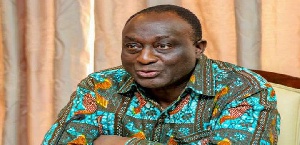Interesting times are ahead as unemployed youth in Ghana show a special interest in the upcoming presidential election following the mid-year budget review.
The contrasting economic policies of Alan Kyerematen and Vice President Alhaji Mahamudu Bawumia have sparked debate, particularly among the unemployed youth. Alhaji Bawumia’s National Builders Corps (NABCO) used nearly 4 billion Ghana cedis to create 100,000 temporary jobs, with many still awaiting payments from the government.
In contrast, Alan Kyerematen’s One District, One Factory (1D1F) program, with only 400 million cedis, generated 170,000 permanent jobs. This suggests that if 1D1F had received the same funding as NABCO, it could have created over 1.5 million stable jobs, demonstrating the potential impact of industrialization on employment in Ghana.
Furthermore, the former Trade and Industry Minister, Alan Kyerematen, successfully implemented a car assembly policy, leading to 13 automobile companies in Ghana and creating job opportunities for engineering graduates. In contrast, Bawumia’s Gold-for-Oil policy has failed to stabilize fuel prices or strengthen the cedi, leading to ongoing economic challenges.
This disparity in policy foresight underscores the importance of the youth choosing effective economic strategies that benefit them. Alan Kyerematen’s track record of creating sustainable jobs through industrialization positions him as the better choice for a prosperous future.
To ensure ample employment opportunities, the youth should reject Bawumia’s approach and vote for Alan Kyerematen, whose policies promise more robust economic growth and job creation.
Opinions of Friday, 26 July 2024
Columnist: Ebo Buckman



















